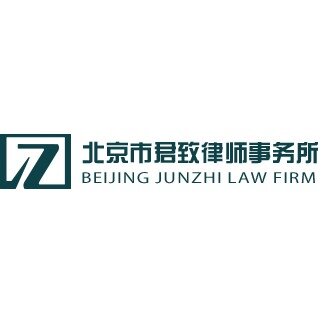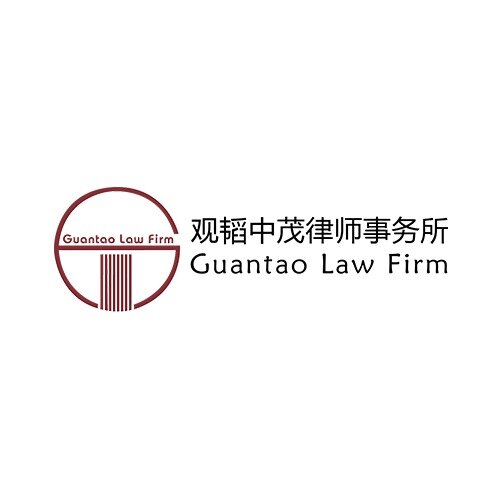Best Real Estate Lawyers in Beijing
Share your needs with us, get contacted by law firms.
Free. Takes 2 min.
Free Guide to Hiring a Real Estate Lawyer
List of the best lawyers in Beijing, China
About Real Estate Law in Beijing, China
Real estate law in Beijing governs the rights and responsibilities of parties involved in the buying, selling, and leasing of property within the capital city of China. The legal framework for real estate encompasses regulations on property ownership, land use, property development, transactions, and dispute resolution. It is influenced by a mix of national laws and local regulations that address unique aspects of the property market in Beijing, including issues related to foreign investment, residential and commercial property transactions, and property management.
Why You May Need a Lawyer
There are numerous situations where individuals and businesses may require legal assistance in real estate matters. These include conducting due diligence during property transactions, navigating the complexities of property ownership rights, dealing with landlord-tenant disputes, understanding local zoning laws, ensuring compliance with environmental regulations, as well as handling any disputes arising from property development projects. Legal counsel is also crucial for foreigners acquiring property or entering lease agreements in Beijing, which involves a different set of rules compared to Chinese nationals.
Local Laws Overview
Key aspects of local real estate laws in Beijing include:
- Property Ownership: Under Chinese law, individuals and entities cannot own land but can acquire land use rights for residential or commercial purposes.
- Foreign Investment: Foreigners face certain restrictions when purchasing property, such as having to demonstrate employment or study status in Beijing for at least one year among other requirements.
- Transaction Procedures: Real estate transactions must comply with strict procedures including due diligence, signing of contracts, obtaining required certificates, and registering with the appropriate government entities.
- Construction Regulations: New developments must adhere to local planning and building regulations, including obtaining the necessary permits and inspections.
- Dispute Resolution: Various avenues exist for resolving disputes, including mediation, arbitration, and litigation in Chinese courts.
Frequently Asked Questions
Can foreign individuals buy property in Beijing?
Foreign individuals can buy property in Beijing, but with restrictions. They generally must have resided in China for more than a year for work or study and can typically only purchase one residential property for their own use.
What are the land use rights in Beijing?
In Beijing, as in all of China, all land is owned by the state or collectives. The land use right is a transferable right that grants the holder the ability to use, develop, and benefit from a piece of land for a specified period.
How long can I hold land use rights in Beijing?
Land use rights for residential properties are typically granted for 70 years, while commercial and industrial land use rights may vary, generally 40-50 years.
Do I need to pay property taxes in Beijing?
China is in the process of instituting property taxes, and rules may vary. In general, there are taxes related to property transactions and ownership that should be discussed with a real estate lawyer or accountant.
What should be included in a real estate contract in Beijing?
Contracts should include terms such as the property details, purchase price, payment terms, rights and obligations of each party, conditions for contract termination, dispute resolution mechanisms, and any warranties or representations.
What is the process for registering property in Beijing?
Property registration involves several steps including notarization, obtaining a property rights certificate, and registering with the local real estate registration bureau.
How are real estate disputes resolved in Beijing?
Disputes can be resolved through negotiation, mediation, arbitration, or litigation, dependent on the circumstances and any existing agreements between the parties.
Can I lease the property I own to others?
Yes, property owners can lease their property in accordance with Chinese lease laws and regulations, which dictate the rights and obligations of landlords and tenants.
Do I need a real estate agent to buy property in Beijing?
While not legally required, it is highly recommended to work with a reputable real estate agent to navigate the complexities of the Beijing property market.
Are there any restrictions on selling property in Beijing?
There may be restrictions based on the terms of the land use right, and certain regulations must be complied with regarding the timing of the sale and tax implications. Consultation with a real estate lawyer is advised.
Additional Resources
For those seeking further information and assistance, various resources are available:
- Beijing Municipal Commission of Housing and Urban-Rural Development
- Beijing Real Estate Trading Center
- State Administration for Market Regulation
- Local real estate associations and professional real estate law firms
Next Steps
If you need legal assistance with real estate in Beijing, your next steps should include:
- Researching to identify a reputable real estate lawyer or law firm with expertise in Beijing property law.
- Scheduling a consultation to discuss your specific needs and gather legal advice.
- Ensuring all documents and financial aspects are in order for the transaction or legal case.
- Staying informed about any updates to laws and regulations that may affect your real estate matters.
Approaching real estate transactions and disputes with the assistance of legal counsel is critical to protecting your interests and ensuring a smooth process.
Lawzana helps you find the best lawyers and law firms in Beijing through a curated and pre-screened list of qualified legal professionals. Our platform offers rankings and detailed profiles of attorneys and law firms, allowing you to compare based on practice areas, including Real Estate, experience, and client feedback.
Each profile includes a description of the firm's areas of practice, client reviews, team members and partners, year of establishment, spoken languages, office locations, contact information, social media presence, and any published articles or resources. Most firms on our platform speak English and are experienced in both local and international legal matters.
Get a quote from top-rated law firms in Beijing, China — quickly, securely, and without unnecessary hassle.
Disclaimer:
The information provided on this page is for general informational purposes only and does not constitute legal advice. While we strive to ensure the accuracy and relevance of the content, legal information may change over time, and interpretations of the law can vary. You should always consult with a qualified legal professional for advice specific to your situation.
We disclaim all liability for actions taken or not taken based on the content of this page. If you believe any information is incorrect or outdated, please contact us, and we will review and update it where appropriate.
Browse real estate law firms by service in Beijing, China
Beijing, China Attorneys in related practice areas.
















